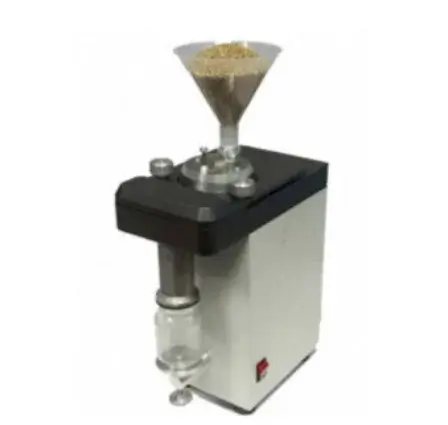Special mills are widely used in chemical, pharmaceutical, food, and research laboratories. Their contribution to research is difficult to underestimate - these devices are responsible for sample preparation. And the result of the study, its reliability and information content directly depend on the correct preparation of samples.
Rotary knife laboratory mill will be useful for every laboratory. Today we will look at its features and advantages.
Design
Using the mill is quite simple: there is a funnel on the outside where the laboratory assistant loads the sample. This could be, for example, grain or finished feed.
Internally, a rotary knife mill consists of a rotating rotor with fixed blades (knives). The material to be crushed enters the mill chamber, where it meets the rapidly rotating knives. This rotation creates shear and impact forces that effectively crush the sample.
The end result is a homogeneous particle powder suitable for further analysis. It can be packaged in filter bags or flasks, and then sent to the analyzer.
Application
Chemical industry. Grinding of chemical compounds for the purpose of analysis or further processing.
Pharmaceutics. Used for preparing samples of medicines and active pharmaceutical ingredients.
Food and feed industry. Processing of raw materials and finished products to analyze their composition.
Scientific research. Preparation of samples for experimental studies
In each of these areas, careful and careful sample preparation is required, since sample homogeneity directly affects the results. Particle unevenness can significantly distort the results.
Advantages
Why are laboratory mills valued?
High efficiency . Rotary knife mills are capable of quickly processing large volumes of samples while providing consistently uniform grinding.
Particle size adjustability. Most mills allow you to adjust the size of the resulting particles, which is important for many types of analysis.
Easy to maintain. Easy access to rotors and knives for replacing or cleaning them.
Safety should be especially noted. While the equipment is operating, the laboratory technician does not have access to the knives - they are securely hidden inside the housing, which reduces the risk of injury. At the same time, the efficiency of the laboratory increases due to the automation of the sample preparation process.




